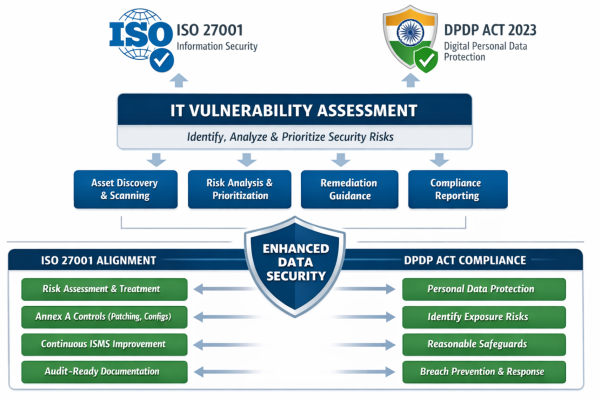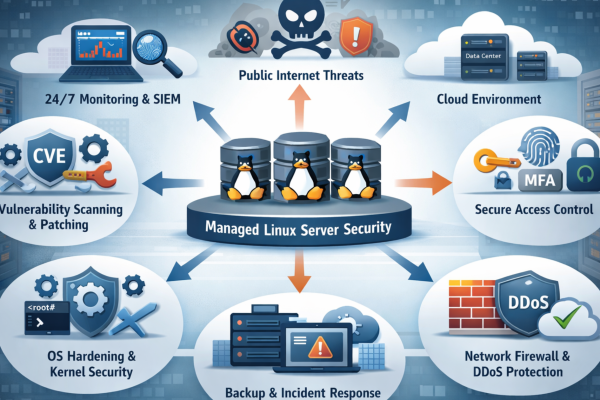How AI is Revolutionizing Server Management Services in 2025
The digital landscape is evolving rapidly, and with it, the demand for smarter, faster, and more secure server management has intensified. In 2025, artificial intelligence (AI) is playing a critical role in transforming traditional IT operations. AI-driven solutions are being widely adopted by organizations to streamline processes, enhance uptime, and strengthen cybersecurity. One key area undergoing a significant transformation is Server Management Services. From predictive maintenance to intelligent automation, AI is setting new standards for how servers are monitored, maintained, and optimized.
In this blog, we will explore the various ways AI is revolutionizing Server Management Services, the technologies driving this change, the benefits and challenges involved, and what the future holds for businesses that embrace AI-powered infrastructure.
What Are Server Management Services?
Server Management Services refer to the tools, technologies, and practices used to oversee and maintain server infrastructure. These services ensure that servers are running efficiently, securely, and reliably. Traditionally, server management involved manual monitoring, software updates, troubleshooting, and performance optimization. However, as systems have become more complex and workloads have increased, manual processes have proven to be time-consuming and error-prone.
AI introduces a new era of efficiency by automating routine tasks and enabling predictive insights that reduce downtime and improve performance. When integrated into Server Management Services, AI enhances every aspect of server operations.
Key Benefits of AI in Server Management Services
- Predictive Maintenance AI uses machine learning algorithms to analyze historical performance data and predict hardware failures or software issues before they occur. This proactive approach prevents unexpected outages and minimizes downtime.
- Automated Monitoring and Alerts AI-powered monitoring tools can track server performance in real-time, detect anomalies, and send instant alerts to IT teams. These tools can also initiate automated responses, reducing the need for manual intervention.
- Enhanced Security AI enhances server security by continuously analyzing access logs, user behavior, and network traffic. It can detect and respond to suspicious activities faster than traditional security methods.
- Efficient Resource Utilization AI helps optimize server resources like CPU, memory, and storage by learning usage patterns and adjusting workloads accordingly. This results in lower operational costs and better performance.
- Scalability With AI, businesses can easily scale their server infrastructure based on real-time demand. This is particularly beneficial for cloud-based environments that need dynamic resource allocation.
- Reduced Human Error By automating repetitive tasks such as updates and patches, AI minimizes the risks associated with human error, ensuring more reliable server operations.
Core AI Technologies Transforming Server Management Services
- Machine Learning (ML) Machine learning enables servers to learn from historical data and identify trends or patterns that can indicate potential problems. ML models can continuously improve their predictions over time.
- Natural Language Processing (NLP) NLP allows administrators to interact with server management systems using voice commands or chatbots. This makes it easier to run diagnostics, receive reports, and initiate tasks.
- Predictive Analytics Predictive analytics uses AI to forecast system behavior, enabling proactive responses to anticipated issues. This is crucial for capacity planning and workload distribution.
- Robotic Process Automation (RPA) RPA integrates with AI to handle repetitive server tasks such as user provisioning, system backups, and log analysis.
- Neural Networks and Deep Learning These advanced AI models help in complex decision-making processes, especially in security monitoring and advanced threat detection.
AI Use Cases in Server Management Services
- Data Center Operations AI is widely used in data centers to monitor hardware health, control energy usage, and manage temperature. AI-driven cooling systems optimize power consumption while maintaining ideal server temperatures.
- Cloud Service Cloud infrastructure service providers use AI to balance loads, auto-scale instances, and detect anomalies. It ensures smooth operation even during traffic spikes.
- IT Help Desk Integration AI-driven Server Management Services integrate with IT help desk tools to automate ticket resolution and user request management.
- Disaster Recovery AI can simulate failure scenarios and test recovery strategies automatically, helping companies improve their disaster preparedness.
- Compliance Management AI helps maintain compliance by automatically auditing server settings, checking for policy violations, and generating reports.
Challenges of AI in Server Management
While AI brings many advantages, it also introduces certain challenges:
- High Initial Cost Implementing AI tools and training staff can be expensive, especially for small and mid-sized businesses.
- Data Requirements AI systems require large datasets to function effectively. Incomplete or biased data can lead to inaccurate predictions.
- Integration Complexity Integrating AI into existing server infrastructure can be complex and time-consuming.
- Security Risks AI systems, if not properly secured, can become targets for cyberattacks, especially if they manage critical infrastructure.
- Skill Gap There is a growing need for IT professionals with expertise in both AI and server management, which can be difficult to find.
Best Practices for Adopting AI in Server Management Services
- Start with Small Projects Begin by automating simple tasks such as log monitoring or software updates before expanding AI use.
- Invest in Training Ensure your IT team is trained to work with AI tools and understand their capabilities and limitations.
- Use High-Quality Data Train AI models on reliable and comprehensive data to improve their accuracy.
- Implement Security Protocols Secure AI systems with multi-factor authentication, encryption, and regular security audits.
- Partner with Experts Collaborate with experienced Server Management Services providers who specialize in AI integration.
The Future of Server Management Services with AI
Looking ahead, AI will continue to evolve and reshape the landscape of server management:
- Self-Healing Servers: AI will enable servers to diagnose and repair issues without human intervention.
- Fully Autonomous Data Centers: Facilities may operate with minimal human input, managed entirely by AI.
- Greater Personalization: Server configurations and management processes will be customized in real-time based on usage.
- Cross-Platform Intelligence: AI will unify management across on-premises, hybrid, and multi-cloud environments.
Conclusion
AI is no longer a futuristic concept; it’s a present-day necessity for efficient and secure server operations. As businesses continue to rely on digital systems, the demand for smarter Server Management Services will only increase. By adopting AI-driven solutions, organizations can ensure better performance, lower costs, and stronger security.
Now is the time to embrace the future. Integrate AI into your Server Management Services and stay ahead in the digital race.
Author







